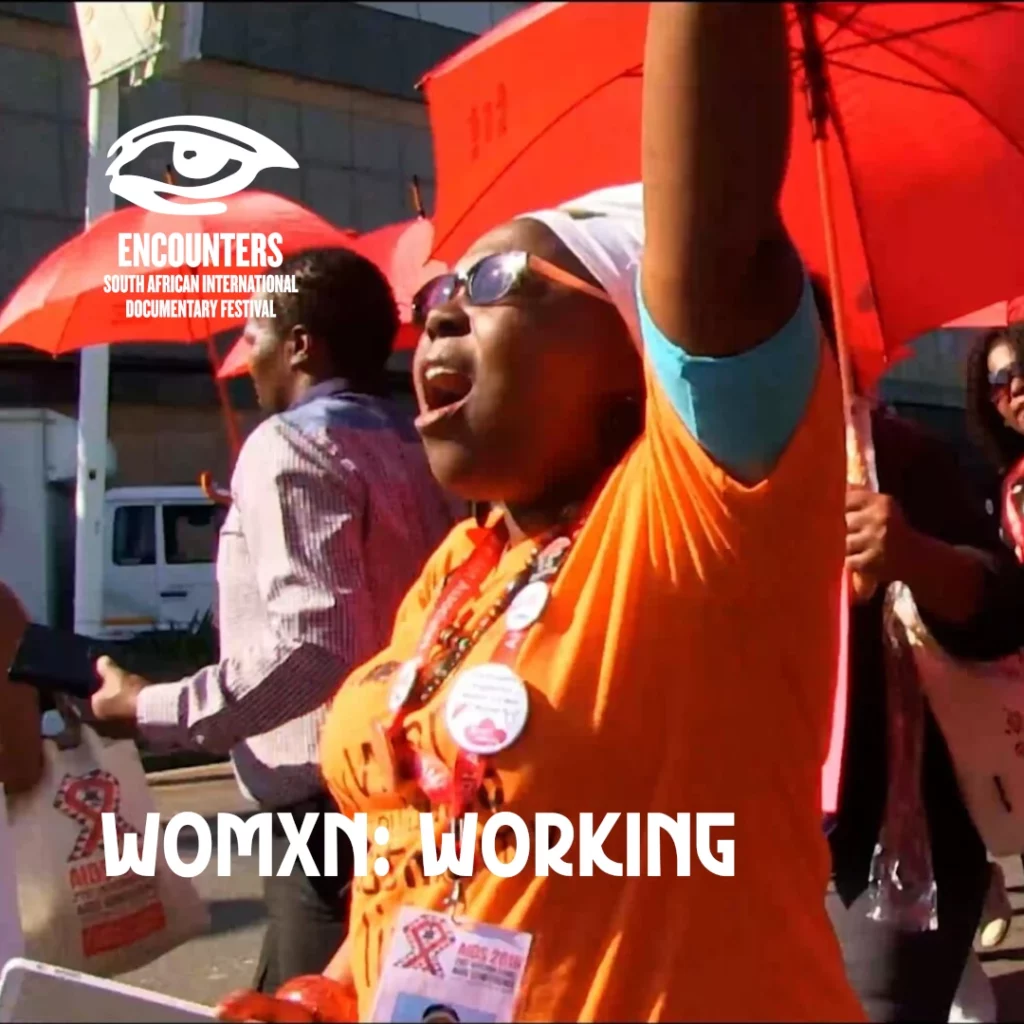A Reflection on Shanelle Jewnarain’s Documentary on Sex Work Activism in South Africa
By: Alice Johnson
Sex work remains criminalised under South Africa’s Sexual Offences Act of 1957 and the Criminal Procedure Act of 1977. These outdated laws continue to feed a cycle of stigma, systemic violence, and social exclusion, ensuring that sex workers are denied basic rights and protections. In the face of this, a collective of bold, resilient women have risen—not just to survive, but to fight. A 2021 study in the SSM Mental Health Journal found that 71% of female sex workers in South Africa had been exposed to physical violence, and 60% had experienced this abuse at the hands of the police.
Shanelle Jewnarain’s documentary Womxn: Working is an urgent take on the sex work decriminalization movement in South Africa, led by fierce voices such as Nosipho Vidima, Nothando Mathe, Duduzile Dlamini, Ruvimbo Tengo, and Kholi Buthelezi. Shot in Khayelitsha, Cape Town, this documentary takes us deep into the lived experiences, the activism, and the sisterhood at the heart of this fight.
The film opens with Nosipho. Her voice is steady, her words stripped of performance. She shares how she turned to sex work in order to support her son, after her hospitality job left her unable to pay the bills. Immediately, the film establishes its raw, tell-all rhythm, one where survival is not romanticized, and choices are contextual, not judged. Ruvimbo Tengo follows, describing herself as a “WhatsApp mom” who is constantly negotiating between distance, provision, and dignity. She doesn’t beg for sympathy, she demands recognition.
Then there’s Duduzile Dlamini, human rights defender and Advocacy Manager at SWEAT (Sex Workers Education and Advocacy Taskforce). She recounts her journey, marked by gender-based violence, exclusion, and marginalization, not just as a sex worker, but as a black woman, a mother of four, and a survivor. The film handles her testimony with sensitivity, avoiding sensationalism while never shying away from truth.
We meet Constance Nothando Mathe, National Coordinator for the Asijiki Coalition for the Decriminalisation of Sex Work. Kicked out by her family, she continues to work part-time in the industry while raising her two children, who are unbothered by outsiders’ cruel remarks. Her presence in the film is calm, measured, and powerful.
What sets this film apart is not just its narrative depth, but its structure. We are first invited into these women’s everyday lives, then the discourse unfolds. Footage of protests, signs that read “MY WORK SHOULD NOT COST ME MY LIFE” and “ONLY RIGHTS WILL STOP THE WRONG,” immerse us in the larger political landscape. The documentary balances intimacy with advocacy.
In 2016, we witness the women attending the International AIDS Conference in Durban, sharing global solidarities, giving talks, and standing their ground during a protest against sex work. Their red umbrellas; symbols of sex worker resistance, are raised in counter protest, a vivid metaphor for the weight they carry daily. But the most chilling moment? Learning that something as simple as being found with a condom can lead to arrest.
Nosipho’s recounting of her near-suicidal thoughts, triggered by the brutal killings of fellow sex workers, is particularly haunting. We watch real footage from the trial of Zwelethy Mthethwa, sentenced to 18 years for the murder of Nokuphila Khumalo. South Africa is, devastatingly, the only country that has documented data on the killings of sex workers globally.
And yet, there are moments of recognition and light. Elton John is seen receiving the Asijiki Award. We also get a perspective from the Office of the Deputy Minister of Justice and other government voices, adding a balanced view to the dialogue. But perhaps the film’s most piercing moment is its quietest; in the final scene, Nosipho is barely a silhouette of her former self. Gone is the firebrand of 2016, the vibrant activist, the unshakable speaker. What we’re left with is a haunting contrast, a woman worn by years of fighting a system that still refuses to see her.
The Film raises a radical question at its core: What does a feminist lens say about sex work? The answer is layered: bodily agency, economic choice, structural inequality, and respect. Feminism, in this context, is not just theory, it’s life.
Womxn: Working is an intimate powerful documentary which is not about pity but power. It’s about redefining dignity, It’s about asking: What happens when we stop speaking for women and start listening to them? The film concludes with a dedication: “This film is dedicated to sex workers in South Africa and around the world. Until everyone is afforded the rights they deserve—Aluta continua.” And once you’ve seen, you cannot unsee!
Catch the film at the Encounters South African International Documentary Festival: http://encounters.co.za/
Screening Schedule
21 June 16:30 Labia (Cape Town)
26 June 18:00 Bertha Isi (Cape Town)
25 June 18:30 Bioscope (Johannesburg)
This review emanates from the Talent Press programme, an initiative of Talents Durban in collaboration with the Durban FilmMart Institute and FIPRESCI. The opinions expressed in this article are those of the author Alice Johnson and cannot be considered as constituting an official position of the organisers.

